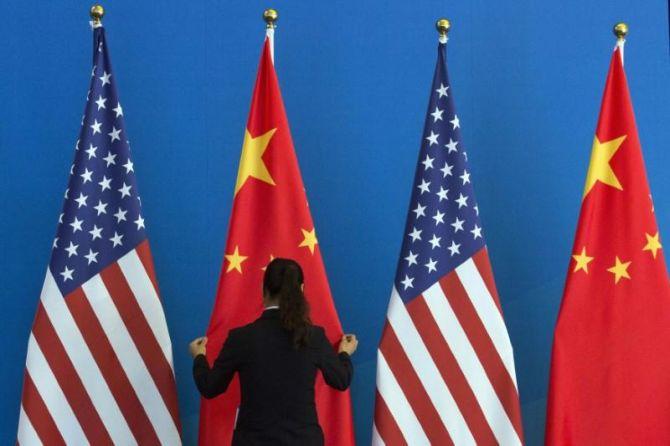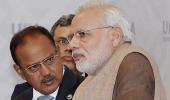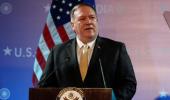The United States has announced new visa bans on senior Chinese officials involved in restricting access to foreigners to the sensitive region of Tibet and reaffirmed its support for 'meaningful autonomy' for Tibetans, opening another point of friction amid tense relations between Washington, DC and Beijing.

Secretary of State Mike Pompeo said he was taking action against an unspecified number of Chinese officials, including from the ruling Communist Party, under a US law that calls on China to let Americans visit Tibet.
'Today I announced visa restrictions on PRC (Peoples Republic of China) officials involved in restricting foreigners' access to Tibet. We will continue to seek reciprocity in our relationship,' Pompeo tweeted on Tuesday.
Beijing has continued systematically to obstruct travel to the Tibetan Autonomous Region (TAR) and other Tibetan areas by US diplomats and other officials, journalists, and tourists, while Chinese officials and other citizens enjoy far greater access to the United States, he said in a statement.
As such, Pompeo said he is announcing visa restrictions on Chinese government and Chinese Communist Party officials determined to be 'substantially involved in the formulation or execution of policies related to access for foreigners to Tibetan areas', pursuant to the Reciprocal Access to Tibet Act of 2018.
The Act was signed into law by President Donald Trump in December 2018.
It calls for denying access to the US for Chinese officials known to be involved in restricting visits to Tibet.
Access to Tibetan areas is increasingly vital to regional stability, given the Chinese human rights abuses there, as well as Beijing's failure to prevent environmental degradation near the headwaters of Asia's major rivers, he said.
Pompeo said the US will continue to work to advance the sustainable economic development, environmental conservation, and humanitarian conditions of Tibetan communities within China and abroad.
"We also remain committed to supporting meaningful autonomy for Tibetans, respect for their fundamental and unalienable human rights, and the preservation of their unique religious, cultural, and linguistic identity."
The Dalai Lama, Tibet's exiled spiritual leader has been demanding meaningful autonomy for Tibetans. But China has viewed the India-based 85-year-old Dalai Lama as a 'separatist'.
"In the spirit of true reciprocity, we will work closely with the US Congress to ensure US citizens have full access to all areas of the People's Republic of China, including the TAR and other Tibetan areas," Pompeo said.
Reacting to Pompeo's statement, China on Wednesday said it opposes the US measures, Chinese Foreign Ministry spokesman Zhao Lijian said and warned that Beijing would retaliate with counter measures.
"In response to the US erroneous act, China decides to impose visa restrictions on US individuals with egregious conducts on Tibet-related issues," he told reporters in Beijing while responding to Pompeo's statement.
"We urge the US side to immediately stop interfering in China's internal affairs with Tibet as a pretext, and refrain from going further down the wrong path, lest it should further harm China-US relations as well as exchange and cooperation between the two countries," he said.
"Regarding the so-called Reciprocal Access to Tibet Act of 2018, China has made clear its solemn position on many occasions. Tibetan affairs are purely China's internal affairs that allow no foreign interference," he said.
He said China pursuing a policy of opening up, and claimed that Tibet is open to all with no restriction on foreigners' entry.
According to incomplete statistics, from 2015 to 2018, nearly 176,000 foreigners travelled to Tibet for official visits, tourism and business trips, including about 175,000 tourists, nearly 500 diplomats and 343 journalists, he said.
The spokesman also noted that US Ambassador to China Terry Branstad also visited Tibet last year and had talks with several departments of the government of the Tibetan Autonomous Region.
Zhao said there is no problem with foreigners' entry into Tibet.
At the same time, he emphasised that 'considering the special geographical and climatic conditions in the region, it is entirely necessary and indisputable that the government takes some lawful measures to manage and protect foreign nationals in Tibet'.
China welcomes more foreign citizens to visit, travel in and do business in Tibet.
"This policy won't change. However, they must abide by Chinese laws and regulations and follow necessary procedures," the spokesman said.
Relations between Washington and Beijing have spiralled downward since the outbreak of the novel coronavirus, which Trump has blamed on China.
The two countries have also sparred over China imposing a new national security law in Hong Kong last month.
Restrictions on American journalists by China and retaliatory actions by the US, and differences over Beijing's treatment of its Uyghur Muslim population in the restive region of Xinjiang have also contributed to the worsening bilateral ties.











 © 2025
© 2025